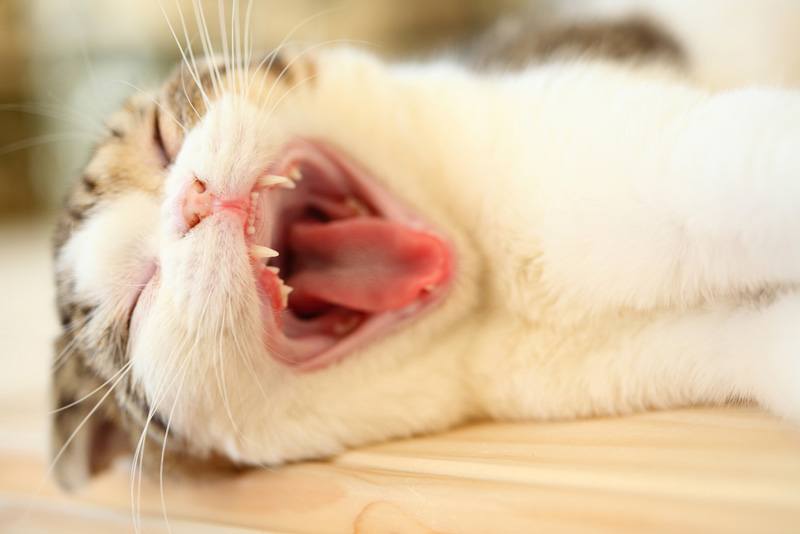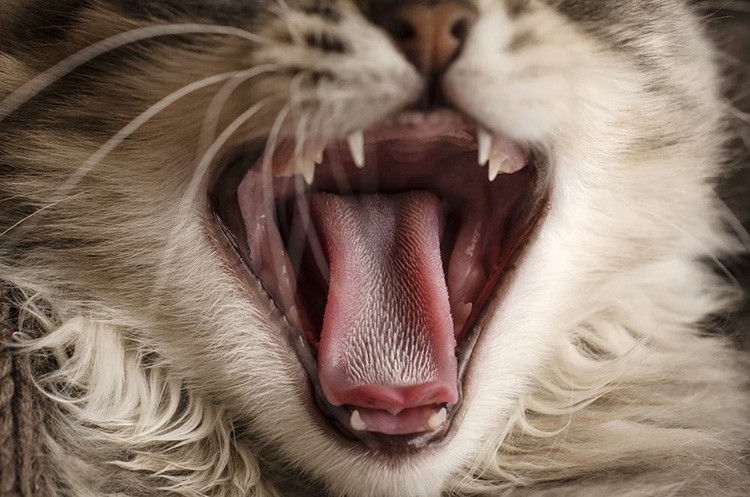Teeth are considered as an important feature of your cat’s life. Not only it is to catch their prey, but it serves many functions like grooming and taking care of their litters. As it has many aspects, have you stopped and wondered how many teeth do cats have?
It seems like it’s only now that cat owners had started to give attention to dental care in cats especially when the internet exploded the news that it loves cat videos and memes. But one has to know that dental awareness and hygiene in cats can have a huge effect on the tooth and other organs of the cat’s body also.
Here, we’ll show you through all features of a cat’s tooth – from how many teeth do cats have to tips on taking care of your feline’s teeth.
Do kittens have teeth when they are born?
Kittens are born without teeth, but after their birth, they start developing the deciduous teeth which are also called baby or milk teeth. The teething is followed by incisors, canines, and premolars when they grow older. But kittens don’t get to develop molars just yet. See a little timeline below.
Baby teeth
- Two weeks: At two weeks of a kitten’s birth, the deciduous incisors start coming out of the gums.
- Three to four weeks: Within three to four weeks, the canines also start appearing.
- Four to six weeks: Four to six weeks later, the premolars on the lower jaw usually start appearing.
- Eight weeks: Your kitten will have all of the deciduous teeth after eight weeks has passed from its birth.
- Three to four months: The kittens usually have their permanent incisors when they are three and a half to four months old.
- Five months: When your cat reaches five months, its four canines should pop out.
- Six months: Six months, the ten premolars have grown.
When your kitten is teething, the pain will bother your little feline friend. Its gums will become sore, and your pet will be restless and uncomfortable.
Things to do during kitten’s teething period
- Provide it with soft food like low carb cat food or kibble in small pieces as they do not require to be chewed forcefully.
- Provide the cats with soft chews and toys. The chews are available to a great variety like nylon and rubber. Make sure it's non-toxic. Don’t play with toys quite strongly with your kitten.
- You can place your chewers inside the fridge for it to become a bit cold. It can bring comfort to the sore gums and erupting teeth when your kitten plays with it.
- There can be a problem in bringing out the teeth like misalignment, crowding, and intense pain. Visit the vet to make sure your cat’s teeth are aligned.
- Avoid brushing your kitten’s teeth during this phase.
Remember one thing: when a cat undergoes teething for the deciduous teeth, it conceives only 26 teeth. When your cat reaches its adult stage, its permanent teeth will develop a complete set of 30 teeth.
Do cats suffer gum problems?
Tooth cavities and swollen gums can also happen to your cat. Main symptoms like bad breath or excessive drooling can, in fact, link to another disease to the heart, kidneys or more. Your cat’s dental problems can start showing signs during your kitty’s third year.
Sadly, most cat owners only notice it when their pets start losing a tooth. How many teeth do cats have won’t matter anymore when they start to fall off. Some clues that will tell you that your cat is having problems include:
- Drooling
- Bad breath
- Loss of appetite
- Quickly gets hurt when touched around the mouth area
- Eats food a bit differently
- Loss of tooth
- Stomatitis or inflammation of the mouth
- Plaque and tooth decay
- Inflammation of the pulp or the gums
Cats may not enjoy you cleaning their mouth, but they need it. Dental problems are one of the things vets can find in cats whenever an owner brings them to an animal hospital.
- Provide it with an intensive care to keep its translucent teeth healthy.
- Use treats and foods that protect against developing the tartar and plaque.
- Brush the teeth of your pet regularly otherwise; it may give out a bad odor whenever it opens its mouth. Use a soft brush.
- Let your pet eat only low carb cat food.
- Give it soft toys.
- Regular visits to the vet.
You don’t want your cat to suffer in silence, do you? Show your pet some love as they have done for you! And if we missed on anything, just let us know in the comments.
BIO:
My name is Diana Hutchinson. I am the founder of Tinpaw.com.
I am a pet lover, especially dogs and cats. "A home without a pet is just a house".



 RSS Feed
RSS Feed

